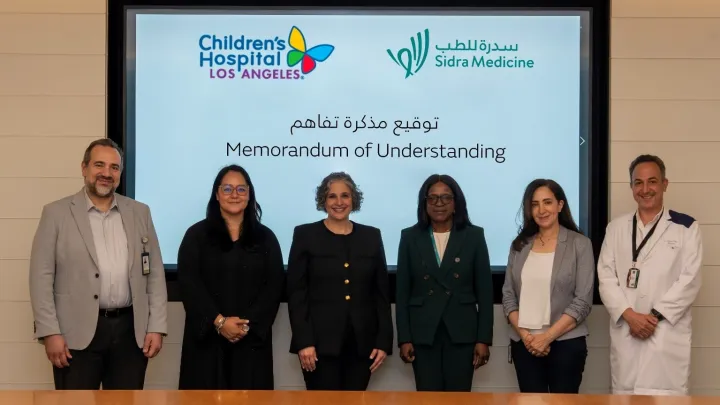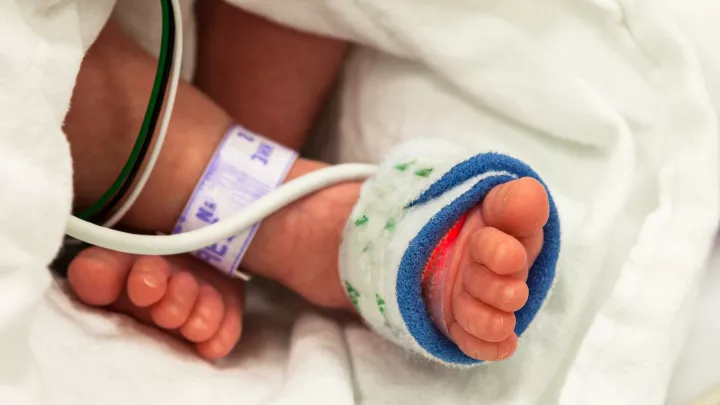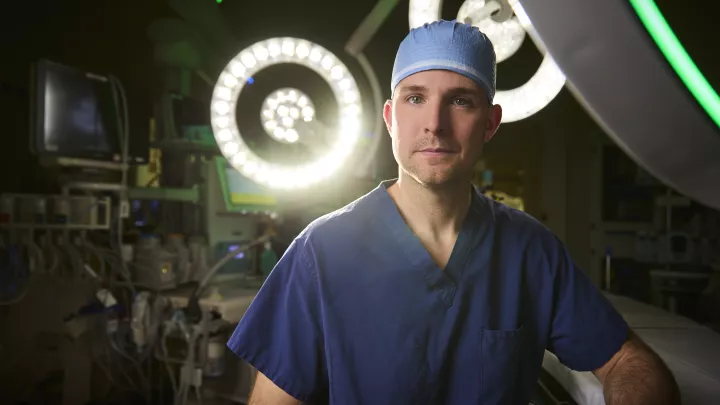MIS-C Diagnosis and Treatment
Multisystem inflammatory syndrome in children, or MIS-C, is a rare but serious condition that appears to be related to COVID-19. MIS-C can cause swelling throughout the body that may damage the heart and other organs.
With prompt hospital treatment, most children recover from MIS-C. At Children's Hospital Los Angeles, our experts are leaders in MIS-C treatment. Since the first cases of MIS-C appeared, our doctors have been researching the best ways to care for children with this condition.
MIS-C Treatment: Why Choose Us
Our nationally ranked hospital provides complete care for children who have MIS-C. Our families receive:
- A dedicated MIS-C clinic: Effective MIS-C treatment requires the care of multiple specialists. Our MIS-C team includes leading experts in pediatric cardiology, infectious diseases, immunology and more. Our MIS-C nurse care manager coordinates and supports your child’s care every step of the way.
- Expert, collaborative care: Our MIS-C specialists meet regularly to discuss each child’s care plan. The combined expertise of our team provides families with seamless care and the best possible outcome.
- Most advanced treatments: Our specialists are actively engaged in MIS-C research and communicate with other research centers across the world. Our research empowers us to provide your child with the most effective and current treatments available.
Diagnostic tests for MIS-C
There is no single test that can diagnose MIS-C. Instead, doctors use a combination of tests that check for inflammation and rule out other health conditions. Tests your child may receive include:
- Blood and urine tests
- COVID exposure tests
- Echocardiogram (echo)
- Electrocardiogram (EKG)
- Medical history and physical exam
Blood and urine tests
Doctors collect blood or urine samples and send them to our in-house laboratory. These samples can reveal signs of inflammation in the body. They can also detect if other health conditions may be present.
COVID exposure tests
Since the beginning of the coronavirus pandemic, CHLA has provided rapid, in-house testing for COVID-19. We use the polymerase chain reaction (PCR) test, which is among the most accurate testing methods available. We also offer antibody testing to check for a previous COVID-19 infection.
Echocardiogram (echo)
MIS-C can affect the heart, so doctors may use an echocardiogram (echo) to check your child’s heart function. An echo is a noninvasive test that uses ultrasound waves to view the blood flow and pumping action of the heart.
Electrocardiogram (EKG)
An electrocardiogram (EKG) is a noninvasive test that measures the heart’s electrical activity. An EKG can detect arrhythmias (heart rhythm abnormalities).
Medical history and physical exam
Our pediatric specialists may perform a physical exam to look for symptoms of MIS-C. They may also ask you about your child’s past COVID-19 exposure or previous COVID-19 test results.
MIS-C Clinic Treatment Team
Each child receives an individualized care plan based on their symptoms and test results. Our comprehensive MIS-C clinic provides access to leading experts in:
- Cardiology
- Gastroenterology
- Hematology
- Hospital medicine
- Immunology
- Infectious diseases
- Neurology
- Pediatric surgery
- Rheumatology
MIS-C Treatment
Some children with MIS-C receive treatment in a standard hospital room, while others need care in our pediatric intensive care unit (PICU). Our MIS-C team evaluates each child to determine the best course of action.
Some of the treatments children receive include:
- Intravenous fluids
- Intravenous immunoglobulins (IVIG)
- Anti-inflammatory medications
- Complete care in our pediatric intensive care unit (PICU)
- Respiratory (breathing) support
Intravenous (IV) fluids
Many children with MIS-C become dehydrated due to a fever, vomiting or diarrhea. Your child may receive fluids through an intravenous (IV) line while in the hospital. IV fluids support their hydration as they recover.
Intravenous immunoglobulins (IVIG)
Intravenous immunoglobulins (IVIG) are blood products that contain special antibodies that fight germs and infections. Prompt IVIG treatment greatly reduces the chances of certain complications from MIS-C. Doctors use an IV line to give this treatment to your child.
Anti-inflammatory medications
Anti-inflammatory medicines like corticosteroids can lower inflammation from MIS-C. These medicines are usually given in an IV and combined with IVIG treatment.
Complete care in our pediatric intensive care unit (PICU)
Our 24-bed pediatric intensive care unit (PICU) is equipped to deliver highly complex and lifesaving care. Our multidisciplinary MIS-C team works seamlessly in the PICU to oversee and support your child’s care.
Respiratory (breathing) support
Some children benefit from breathing support, such as oxygen. In rare cases, children require specialized care with a ventilator or extracorporeal membrane oxygenation (ECMO). ECMO is a specialized machine that supports the heart and lungs.
Follow-up care for MIS-C
Follow-up care is important after children recover from MIS-C. Our MIS-C team continues to provide the best possible care for your child after they leave the hospital.
Your child’s doctor will discuss follow-up care with you. Your child may need regular visits with a pediatrician, cardiologist (excerise testing) or other specialists.


